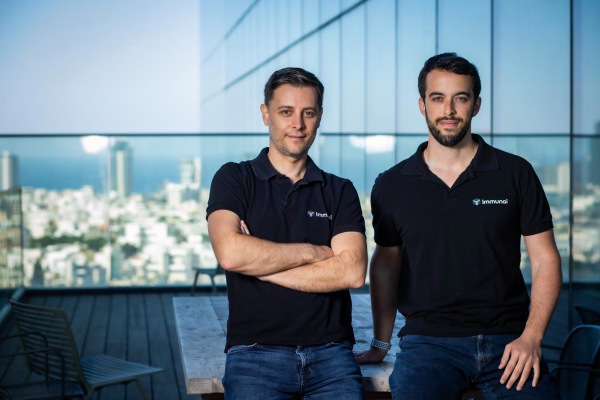Business
Immunai raises $60M as it expands from improving immune therapies to discovering new ones, too

Just three years after its founding, biotech startup Immunai has raised $60 million in Series A funding, bringing its total raised to over $80 million. Despite its youth, Immunai has already established the largest database in the world for single cell immunity characteristics, and it has already used its machine learning-powered immunity analysts platform to enhance the performance of existing immunotherapies. Aided by this new funding, it’s now ready to expand into the development of entirely new therapies based on the strength and breadth of its data and ML.
Immunai’s approach to developing new insights around the human immune system uses a “multiomic” approach — essentially layering analysis of different types of biological data, including a cell’s genome, microbiome, epigenome (a genome’s chemical instruction set) and more. The startup’s unique edge is in combining the largest and richest data set of its type available, formed in partnership with world-leading immunological research organizations, with its own machine learning technology to deliver analytics at unprecedented scale.
“I hope it doesn’t sound corny, but we don’t have the luxury to move more slowly,” explained Immunai co-founder and CEO Noam Solomon in an interview. “Because I think that we are in kind of a perfect storm, where a lot of advances in machine learning and compute computations have led us to the point where we can actually leverage those methods to mine important insights. You have a limit or ceiling to how fast you can go by the number of people that you have — so I think with the vision that we have, and thanks to our very large network between MIT and Cambridge to Stanford in the Bay Area, and Tel Aviv, we just moved very quickly to harness people to say, let’s solve this problem together.”
Solomon and his co-founder and CTO Luis Voloch both have extensive computer science and machine learning backgrounds, and they initially connected and identified a need for the application of this kind of technology in immunology. Scientific co-founder and SVP of Strategic Research Danny Wells then helped them refine their approach to focus on improving efficacy of immunotherapies designed to treat cancerous tumors.
Immunai has already demonstrated that its platform can help identify optimal targets for existing therapies, including in a partnership with the Baylor College of Medicine where it assisted with a cell therapy product for use in treating neuroblastoma (a type of cancer that develops from immune cells, often in the adrenal glands). The company is now also moving into new territory with therapies, using its machine learning platform and industry-leading cell database to new therapy discovery — not only identifying and validating targets for existing therapies, but helping to create entirely new ones.
“We’re moving from just observing cells, but actually to going and perturbing them, and seeing what the outcome is,” explained Voloch. This, from the computational side, later allows us to move from correlative assessments to actually causal assessments, which makes our models a lot more powerful. Both on the computational side and on the lab side, this are really bleeding edge technologies that I think we will be the first to really put together at any kind of real scale.”
“The next step is to say, ‘Okay, now that we understand the human immune profile, can we develop new drugs?’,” said Solomon. “You can think about it like we’ve been building a Google Maps for the immune system for a few years — so we are mapping different roads and paths in the immune system. But at some point, we figured out that there are certain roads or bridges that haven’t been built yet. And we will be able to support building new roads and new bridges, and hopefully leading from current states of disease or cities of disease, to building cities of health.”
-

 Entertainment7 days ago
Entertainment7 days agoWhat’s new to streaming this week? (Jan. 17, 2025)
-

 Entertainment6 days ago
Entertainment6 days agoExplainer: Age-verification bills for porn and social media
-

 Entertainment6 days ago
Entertainment6 days agoIf TikTok is banned in the U.S., this is what it will look like for everyone else
-

 Entertainment5 days ago
Entertainment5 days ago‘Night Call’ review: A bad day on the job makes for a superb action movie
-

 Entertainment5 days ago
Entertainment5 days agoHow ‘Grand Theft Hamlet’ evolved from lockdown escape to Shakespearean success
-

 Entertainment6 days ago
Entertainment6 days ago‘September 5’ review: a blinkered, noncommittal thriller about an Olympic hostage crisis
-

 Entertainment6 days ago
Entertainment6 days ago‘Back in Action’ review: Cameron Diaz and Jamie Foxx team up for Gen X action-comedy
-

 Entertainment6 days ago
Entertainment6 days ago‘One of Them Days’ review: Keke Palmer and SZA are friendship goals
















